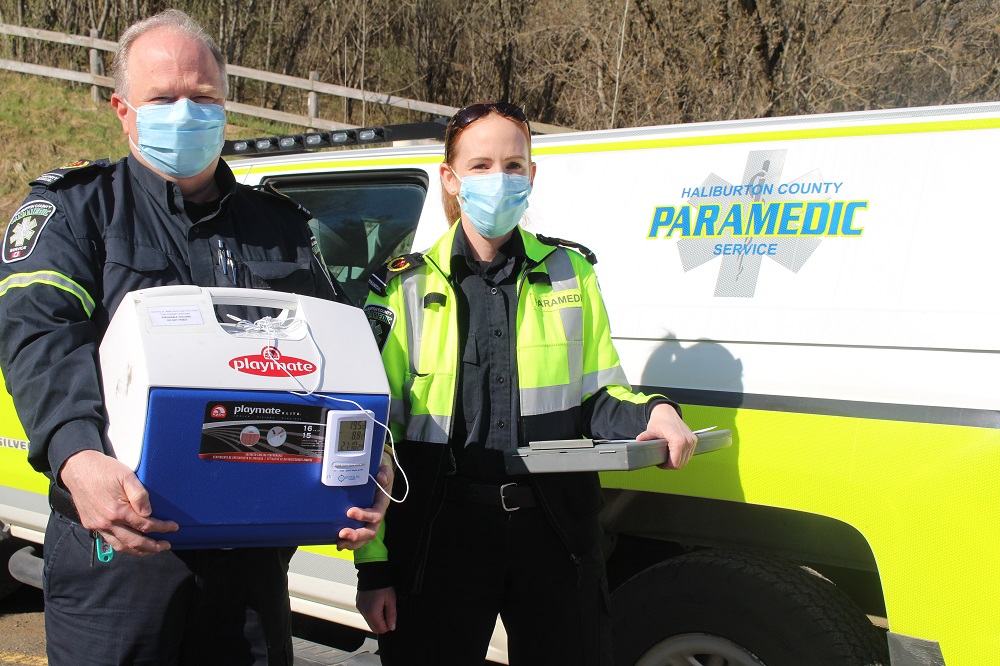The province is piloting a new program in Haliburton to have community paramedics treat palliative care patients at home.
Ontario announced the initiative May 7. It will allow palliative care patients calling 9-1-1 to have the option of being treated on scene for pain and symptom management, versus automatically being taken to hospital.
Haliburton County Paramedic Service deputy chief Jo-Ann Hendry said this will aid in end-of-life comfort and provide a choice for those who wish to be at home.
“They don’t want to be in hospital, they want to be with their family. Those are their dying wishes, and we want to respect that,” Hendry said.
The program is also being piloted throughout Central East Ontario; County paramedic chief/director Tim Waite said paramedics throughout the region submitted a joint proposal.
The province said patients will remain in control of their care and can always request to be taken to the emergency department.
But paramedics can treat symptoms on-site and co-ordinate directly with the patient’s primary palliative care provider afterward.
The province added it also helps protect hospital capacity during the COVID-19 pandemic.
Waite said the model will have use beyond the pandemic as well.
“Certainly, it’s helpful right now,” Waite said. “Moving forward, it’s important for families and for those patients who wish to stay at home.”
Hendry said the initiative will not be implemented until the fall, as further training is required.
She said services are currently occupied with staffing vaccination centres and delivering vaccines.
The pilot will last for 12 months.
Digital support for youth
The Centre for Addiction and Mental Health (CAMH) is planning to create a new digital platform to help service people at its Youth Wellness Hubs.
Youth Wellness Hubs Ontario (YWHO) announced May 7 that it would support developing a one-stop platform to provide youth with access to resources such as mental health assessments, addictions treatment, therapy and counselling.
It will be delivered at the 10 hubs throughout the province, including Haliburton’s.
The platform “enables YWHO to enhance its virtual support for youth anywhere and whenever they need it,” executive director Dr. Joanna Henderson said.
The RBC Foundation is providing $1 million to fund the program.





